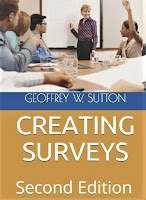Scale name: Clergy Situational Restoration Inventory
(CSRI)
Scale overview
The Clergy Situational Restoration Inventory evaluates
participants’ attitudes toward restoration based on participant responses to 10
transgression scenarios in which a pastor violated a common sociomoral
expectation (Sutton et al. 2007; Sutton & Thomas 2004). The scale uses descriptive
Likert-type ratings that range from one (no restoration to ministry) to seven
(full restoration to the position previously held). The transgression scenarios
include problems of substance abuse, infidelity, and embezzlement. Because of
the range of common yet hypothetical scenarios, the developers expected the
CSRI to assess a disposition to restore.
Author(s)
Sutton and Jordan (2013) with previous versions used
in Sutton et al. (2007), Sutton & Thomas (2004, 2005).
Items
Response Type
A 7-point rating scale with anchors 1 = No Restoration
and 7 = Full restoration.
Subscales
Principal components analyses revealed two subscales
identified as Level 1 and Level 2 where levels appear to represent perceived
offense severity and level 2 items are more severe than level 1.
Level 2 consists of 4 of the 10 items: 3,6,8, and 10.
All other items are Level 1.
Sample items
The full scale can be found in Sutton and Jordan
(2013) or can be downloaded here- see availability below.
2. Pastor, age 43, admits to having a problem with
alcohol during the past six months. Alcohol abuse has accounted for missed
appointments and “sick days.” No prior abuse history is evident. Appears
willing to participate in treatment. Spouse is supportive.
6. Pastor, age 38, admits to adultery lasting a year.
Appears to be sincerely apologetic and willing to enter treatment. Spouse
appears quite devastated but may consider reconciliation.
In a sample of 210, coefficient alpha values were .86
for Level 1 and .79 for level 2. The correlation between the two subscales =
.64 in a sample of participants who actually knew a clergy offender (n =
169). See Sutton and Jordan (2013).
CSRI Level 1 was significantly positively correlated with the
following scales
LRSR (Leadership Restoration Scale-Restore)
LRSF (Leadership Restoration Scale-Forgive and Restore)
TFS (Trait Forgiveness Scale; Berry et al., 2005)
SCBS (Santa Clara Brief Compassion Scale; Hwang
et al., 2008))
CSRI Level 1 was significantly negatively correlated with the
following scales
TRIM-A (Transgression Related InterpersonalMotivations- Avoidance; McCullough et al., 1998)
IER-EP (Intrinsic-Extrinsic Religiosity Scale
Revised-Extrinsic Personal Subscale; Gorsuch & McPherson, 1989)
CSRI Level 2 was significantly positively correlated with the
following scales
LRSR (Leadership Restoration Scale-Restore)
IER-ES (Intrinsic-Extrinsic Religiosity Scale
Revised-Extrinsic Social Subscale)
CSRI Level 2 was significantly negatively correlated with the
following scale
TRIM-A
Availability
See Appendix A of Sutton and Jordan (2013) or
Click Here
to Download Scale
Permissions -- if identified
This scale may be
used in research and teaching at no charge. Please cite Sutton & Jordan
(2013). For use in books or any commercial use, contact Geoffrey W. Sutton PhD
at suttong@evangel.edu
Reference(s)
Berry, J. W., Worthington, E. R., O'Connor,
L. E., Parrott, L., & Wade, N. G. (2005). Forgivingness, vengeful
rumination, and affective traits. Journal of Personality, 73,
183–225. doi:10.1111/j.14676494.2004.00308.x.
Gorsuch, R. L., & McPherson, S. E.
(1989). Intrinsic/extrinsic measurement: I/E-Revised and singleitem scales. Journal
for the Scientific Study of Religion, 28, 348–354. doi:10.2307/1386745.
Hwang, J., Plante, T., & Lackey, K.
(2008). The development of the Santa Clara Brief Compassion Scale: an
abbreviation of Sprecher and Fehr's compassionate love scale. Pastoral
Psychology, 56, 421–428. doi:10.1007/s11089-008-0117-2.
McCullough, M. E., Rachal, K., Sandage, S.
J., Worthington, E., Brown, S., & Hight, T. L. (1998). Interpersonal
forgiving in close relationships: II. Theoretical elaboration and measurement. Journal
of Personality and Social Psychology, 75, 1586–1603.
doi:10.1037/0022-3514.75.6.1586.
Sutton, G. W. (2016). A House Divided: Sexuality, morality, and Christian cultures.
Eugene, OR: Pickwick. ISBN: 9781498224888 AMAZON
Sutton, G. W. &
Jordan, K. (2013). Evaluating attitudes toward clergy restoration: The
psychometric properties of two scales. Pastoral
Psychology, 62, 859-871. doi 10.1007/s11089-013-0527-7 [Reference for the CSRI in this post]
Sutton, G. W., McLeland, K. C., Weaks, K.
Cogswell, P. E., & Miphouvieng, R. N. (2007). Does gender matter? An
exploration of gender, spirituality, forgiveness and restoration following
pastor transgressions. Pastoral Psychology.
55, 645-663. doi 10.1007/
s11089-007-0072-3
Sutton, G.W., & Thomas, E. K. (2005).
Can derailed pastors be restored? Effects of offense and age on restoration. Pastoral Psychology,
53, 583-599. Academia Link Research
Gate Link
Thomas, E. K., White, K., & Sutton, G.W.
(2008). Religious leadership failure: Apology, responsibility-taking, gender,
forgiveness, and restoration. Journal of Psychology and Christianity,
27, 16-29. Academia Link Research
Gate Link
Resource for using scales in research:
Creating Surveys on AMAZON or GOOGLE
Applied Statistics Concepts for Counselors on AMAZON or GOOGLE
Links to Connections
Checkout My Website www.suttong.com
See my Books
FOLLOW me on
FACEBOOK Geoff W. Sutton
TWITTER @Geoff.W.Sutton
PINTEREST www.pinterest.com/GeoffWSutton
Read published articles:
Academia Geoff W Sutton
ResearchGate Geoffrey W Sutton
Photo credit- Bing free to share and use



Comments
Post a Comment